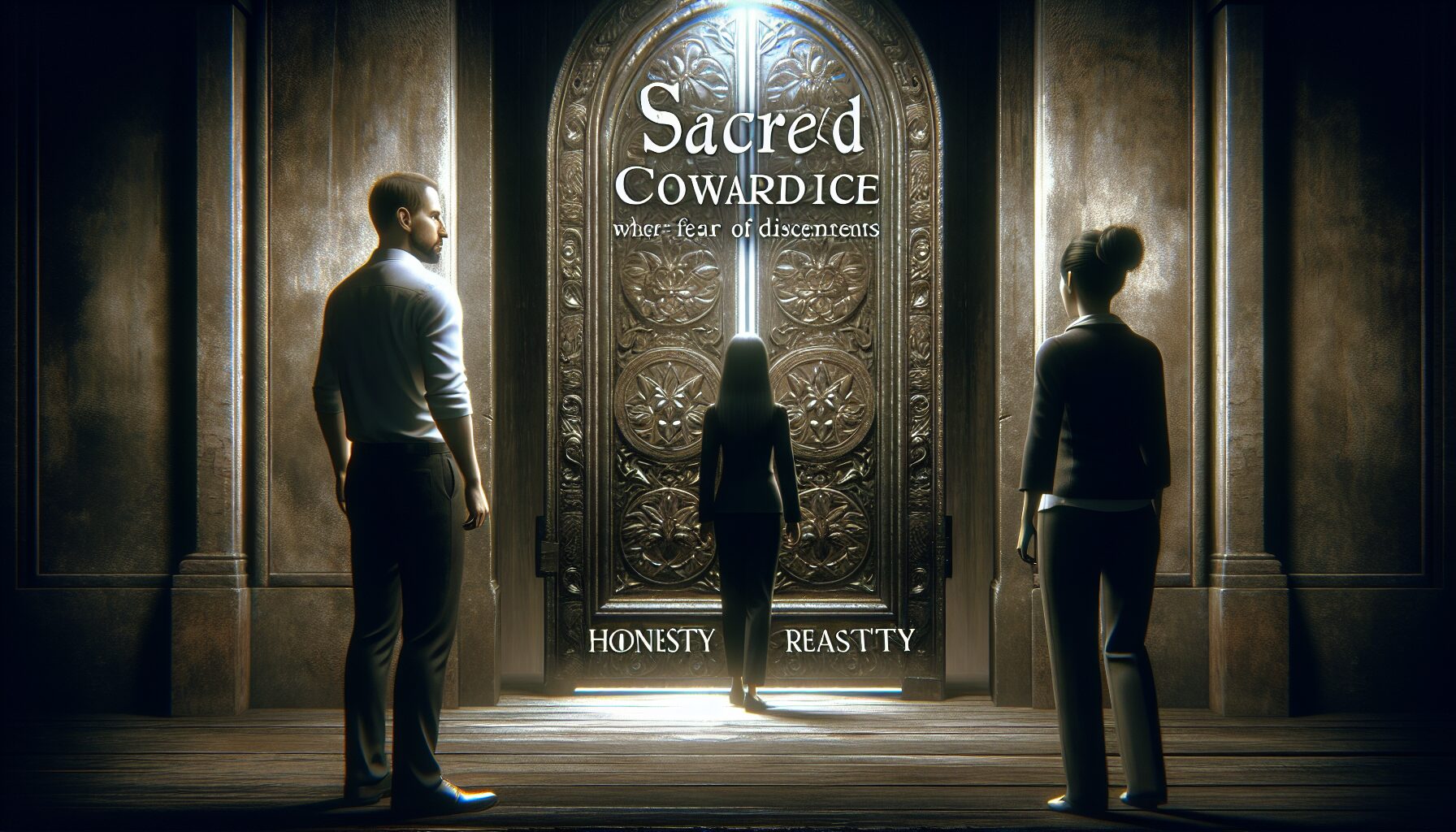Sacred Cowardice: When Fear of Dissent Replaces Honesty
Throughout history, societies have shaped sacred narratives that offer cohesion and identity. However, these narratives sometimes demand adherence without question. This is the terrain where sacred cowardice thrives, where fear of dissent replaces the courage required for honesty. Understanding this phenomenon is critical in an era that increasingly venerates authenticity.
The Nature of Sacred Cowardice
At its core, sacred cowardice is the reluctance to question established norms due to a fear of social or personal repercussions. It is an abdication of intellectual and ethical responsibility where maintaining harmony overrides speaking truthfully. Social commentator Christopher Hitchens once quipped, “The essence of the independent mind lies not in what it thinks, but in how it thinks.” (Goodreads). This underscores the importance of critical thinking, which is often sacrificed on the altar of conformity.
Historical and Cultural Precedents
History is replete with instances where sacred cowardice has prevailed. Consider the case of the Galileo Affair—Galileo’s advocacy for the heliocentric model was met with fierce opposition, not due to scientific dissent, but because it threatened the orthodoxy of the Catholic Church at the time.
“In questions of science, the authority of a thousand is not worth the humble reasoning of a single individual.” – Galileo Galilei
This single instance illustrates how fear of dissent can suppress factual truth, allowing sacred narratives to persist despite evidence to the contrary.
The Anatomy of Fear
- Social Ostracism: Chief among the fears prompting sacred cowardice is the fear of being cast out. Humans are innately social creatures; exclusion from the collective can create profound psychological distress.
- Institutional Penalties: In many workplaces and societal structures, dissent can lead to punitive measures. The threat of losing one’s job, status, or peace can stifle even the most righteous objection.
- Self-Censorship: Sometimes, the most insidious form of censorship is the one we impose on ourselves. This internal blockade can stifle discourse before it ever reaches the outside world.
Consequences of Avoiding Dissent
When fear dominates, it leads to a stagnant culture where innovation and progress are stifled. The unwillingness to confront uncomfortable truths nurtures mediocrity and injustice. Philosopher John Stuart Mill warned against this when he said, “The peculiar evil of silencing the expression of an opinion is, that it is robbing the human race… Those who dissent from the opinion, still more than those who hold it.” (Molloy College).
Breaking the Cycle of Cowardice
Overcoming sacred cowardice requires fostering environments that value dissent and critical thought. Here are some steps that can be taken:
- Encouraging Open Dialogue: Cultures that reward honest dialogue stimulate progress. Allowing space for debate without fear of reprisal encourages innovation.
- Valuing Diverse Opinions: The inclusion of varied perspectives enriches the decision-making process. It is crucial to create platforms where different views can be expressed and considered.
- Education Reform: Curriculum focused on critical thinking and reasoning equips future generations to challenge sacred norms without fear.
Conclusion
Sacred cowardice is not merely a personal shortfall but a societal affliction. Fear of dissent should not eclipse the pursuit of truth and honesty. In a world increasingly interwoven with complex challenges, it is paramount that individuals and institutions summon the courage to confront inconvenient truths. By doing so, we better position ourselves to overcome stagnation and aim for enlightened progress.
Ultimately, the journey away from sacred cowardice is a collective endeavor that requires not only introspection but also systemic change. In echoing the courage to dissent, society creates a space where honesty prevails, paving the way for genuine progress and true human flourishing.
